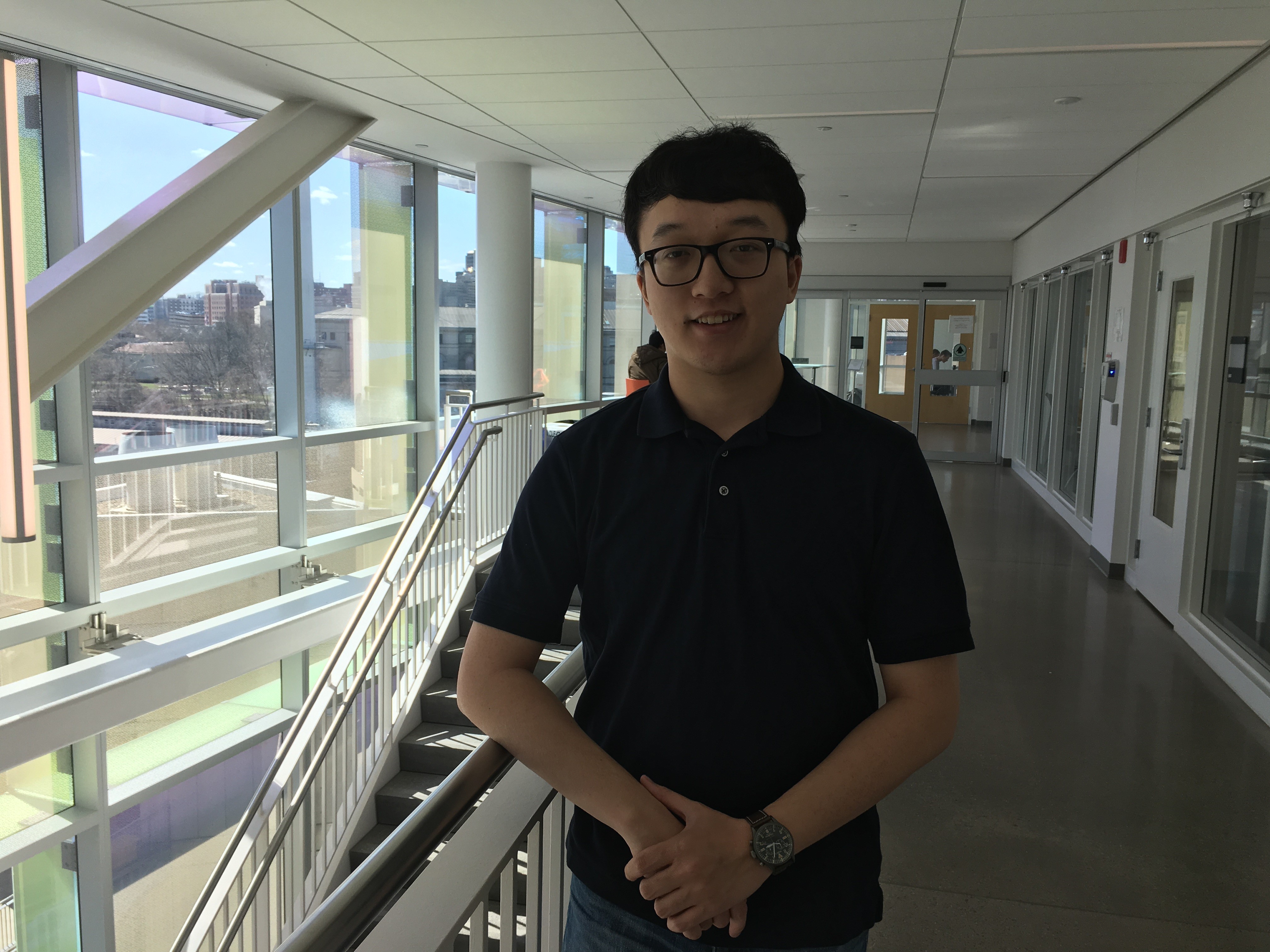
Teddy Cai Wins Prestigious Scholarship
BME senior will earn an accelerated doctorate via the NIH Oxford-Cambridge Scholars Program
Senior Teddy Cai is one of an elite group of students nationwide selected for the 2019 class of the prestigious National Institutes of Health (NIH) Oxford-Cambridge Scholars Program.
Cai, majoring in Biomedical Engineering and Chemical Engineering, will earn an accelerated doctoral degree over the course of four years, with full tuition support. He will spend two years doing research at the NIH, and two years at one of the U.K.’s top universities — earning either a Ph.D. from the University of
Professor Kris Dahl encouraged Cai to apply for the renowned and highly selective program, following Cai’s internship at the National Institutes of Health last summer. There, Cai worked with his mentor, Dr. Peter Joel Basser, on perfecting diffusion-weighted magnetic resonance imaging (DW-MRI) techniques to study brain tissue. By using DW-MRI to map the movement of water molecules in the brain, Cai hopes to reveal microscopic details of the tissue that can indicate whether it is normal, or in a diseased state. This area of study could prove vital in detecting cancer, Alzheimer’s, or other degenerative disorders at an early stage.
Following his work at the NIH, Cai was the first author on a paper, “Rapid Detection of the Presence of Diffusion Exchange,” that was published in Journal of Magnetic Resonance in December 2018. He will continue his work on DW-MRI techniques as he pursues his doctoral degree.
“I’m very grateful for this opportunity to earn my doctorate in an accelerated time period — and to perform advanced research at some of the world’s leading institutions,” says Cai. “I appreciate the support I’ve received from everyone in the Department of Biomedical Engineering. I’m also fortunate that the flexible BME curriculum enabled me to study diverse topics, including tissue engineering and machine learning, that prepared me for this opportunity.”
A peer tutor at Carnegie Mellon, Cai also tutors younger students in the Greater Pittsburgh area through FAME (Fund for Advancement of Minorities through Education). He eventually hopes to become a faculty member in biomedical engineering. “I have a passion for research, but I also love working with students, both on and off campus, and sharing my knowledge,” he notes. “I believe a career in academia would allow me to perfectly bridge those two interests.”
Founded in 2001, the NIH Oxford-Cambridge Scholars Program has allowed over 200 biomedical researchers to earn doctoral careers in an accelerated, individualized manner. Students can perform customized research without the need for formal coursework. Based on the British educational approach, the program seeks to shorten the typical 7.8 years required to earn a Ph.D. in America, create exposure to multiple institutions, encourage collaboration, and prepare graduates for success in the global science community.